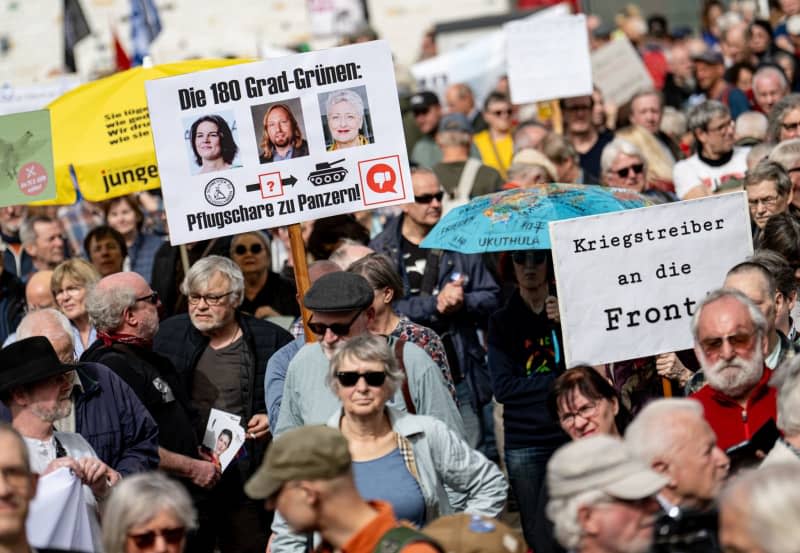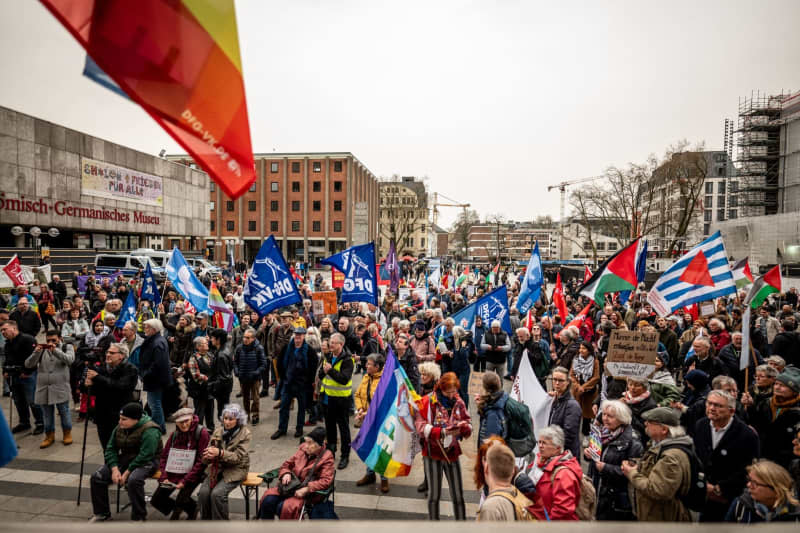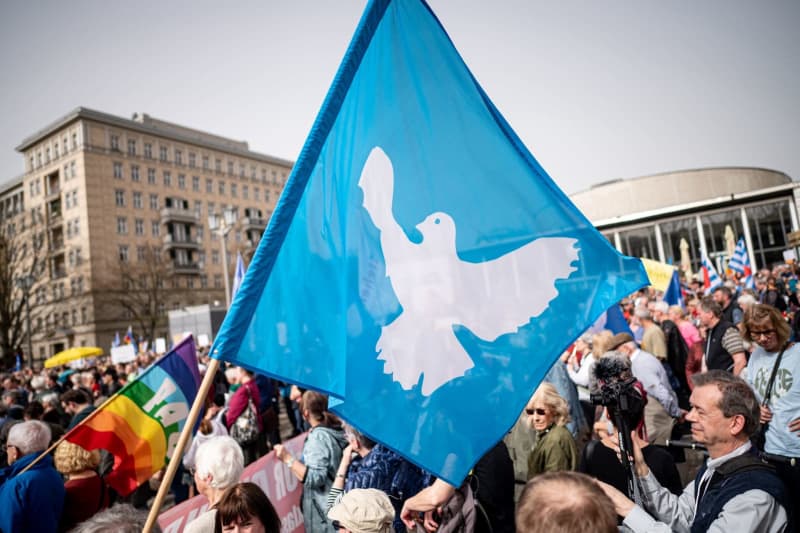Halle and Frankfurt-an-der-Oder on the Polish border were among the cities that held events on Sunday, according to the Peace Co-operative Network.
In the western state of North Rhine Westphalia, the Rhine-Ruhr Easter March made its way from the city of Essen to Wattenscheid on Sunday.
The motto of this year’s Easter marches is “Now more than ever – together for peace.”
Easter Sunday is generally considered the day with the lowest turnout. “I am satisfied,” Kristian Golla from the Peace Cooperative Network told dpa on Sunday.
The level of participation was roughly the same as last year or slightly higher, he added. It was still too early to name a nationwide total, however.
According to the organizers, the central themes are demands for negotiations in Russia’s war against Ukraine, which violates international law, as well as in the Gaza war. Protesters are also calling for nuclear disarmament and criticizing rising arms spending.
Thousands of participants already took to the streets in 70 German cities on Saturday.
In Cologne, for example, police reported that around 300 participants gathered on Roncalliplatz, a square near the cathedral, under the rallying motto “For a civilian turning point: End wars, stop armament!”
The motto used the term Chancellor Olaf Scholz coined, “Zeitenwende,” or turning point in Germany’s defence policy shortly after Russia launched the full-scale invasion of Ukraine more than two years ago.
The peace demos will continue on Monday, with events planned Hamburg, Dresden, Frankfurt, Munich and other muncipalities in Germany.
Germany’s traditional Easter Marches emerged from last century’s pan-European peace movement calling for nuclear disarmament and protesting the arms race, with the first Easter march held in Britain in 1958.
This year, marchers in Germany have also been demanding a more fundamental rejection of the logic of war and militarization.



